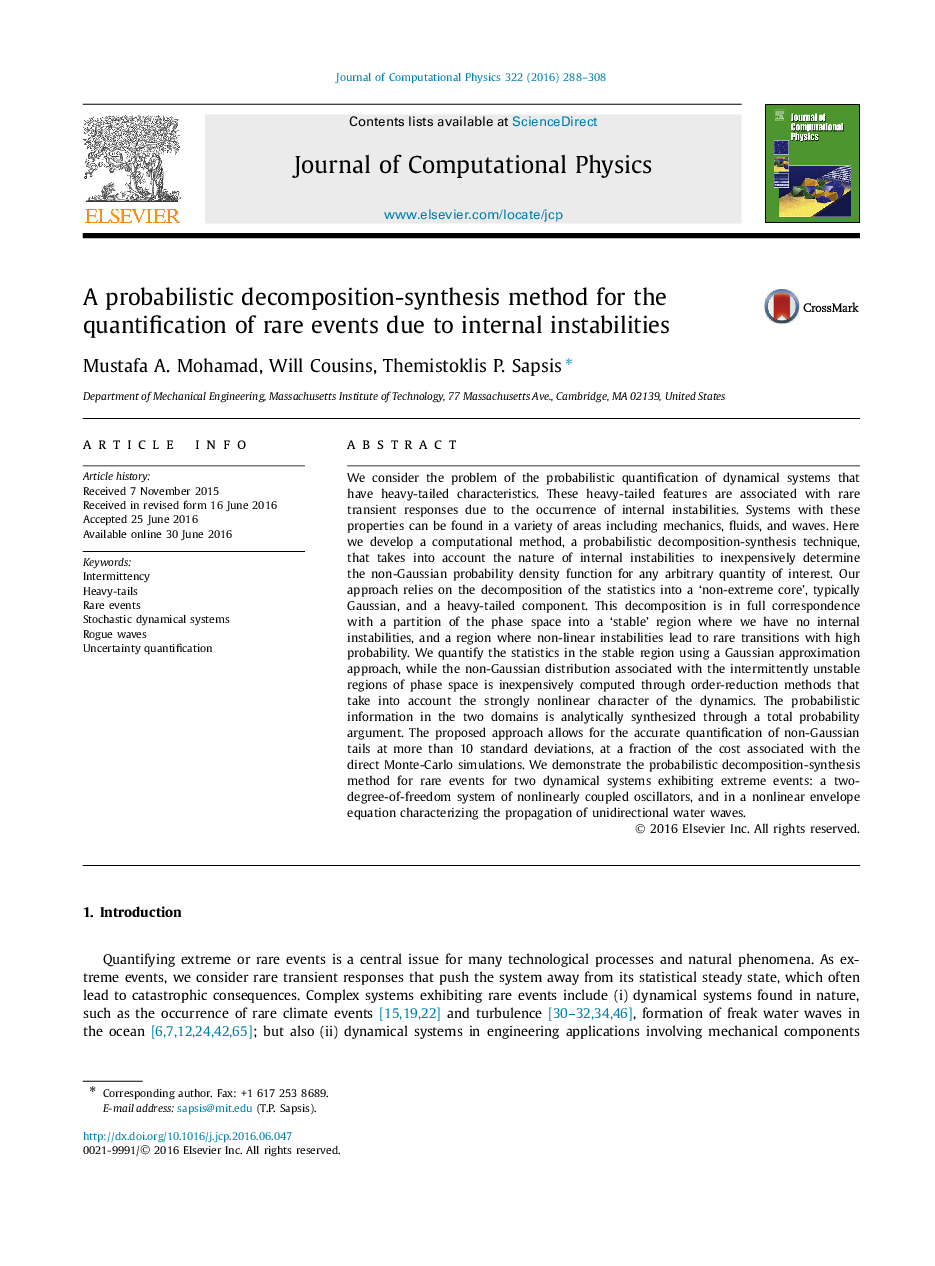| Article ID | Journal | Published Year | Pages | File Type |
|---|---|---|---|---|
| 6929564 | Journal of Computational Physics | 2016 | 21 Pages |
Abstract
We consider the problem of the probabilistic quantification of dynamical systems that have heavy-tailed characteristics. These heavy-tailed features are associated with rare transient responses due to the occurrence of internal instabilities. Systems with these properties can be found in a variety of areas including mechanics, fluids, and waves. Here we develop a computational method, a probabilistic decomposition-synthesis technique, that takes into account the nature of internal instabilities to inexpensively determine the non-Gaussian probability density function for any arbitrary quantity of interest. Our approach relies on the decomposition of the statistics into a 'non-extreme core', typically Gaussian, and a heavy-tailed component. This decomposition is in full correspondence with a partition of the phase space into a 'stable' region where we have no internal instabilities, and a region where non-linear instabilities lead to rare transitions with high probability. We quantify the statistics in the stable region using a Gaussian approximation approach, while the non-Gaussian distribution associated with the intermittently unstable regions of phase space is inexpensively computed through order-reduction methods that take into account the strongly nonlinear character of the dynamics. The probabilistic information in the two domains is analytically synthesized through a total probability argument. The proposed approach allows for the accurate quantification of non-Gaussian tails at more than 10 standard deviations, at a fraction of the cost associated with the direct Monte-Carlo simulations. We demonstrate the probabilistic decomposition-synthesis method for rare events for two dynamical systems exhibiting extreme events: a two-degree-of-freedom system of nonlinearly coupled oscillators, and in a nonlinear envelope equation characterizing the propagation of unidirectional water waves.
Keywords
Related Topics
Physical Sciences and Engineering
Computer Science
Computer Science Applications
Authors
Mustafa A. Mohamad, Will Cousins, Themistoklis P. Sapsis,
